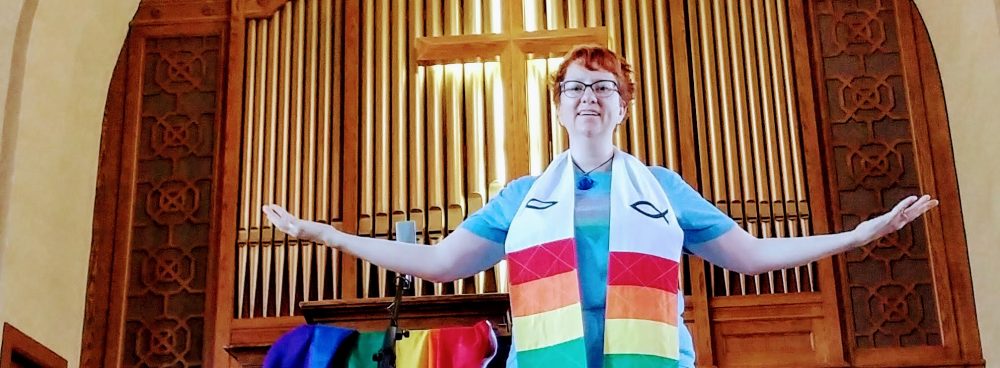We have reached the fourth Sunday of Advent and we wait with anticipation for love to be born among us. Mary speaks the Magnificat after she realizes she is pregnant before she is married. You can imagine the response she might get from her future husband, her family, and her community. Once Mary begins to take in her situation, she responds to God and God’s action in her life.
As the hymn, “My Soul Cries Out” reminds us, Mary “remembers who holds her fast.” She is not alone but is in relationship with a God who will not abandon her. Love cannot exist outside of relationship, but it is more than just an emotion. Love has to do with trust and is lived out in how we respond to the ones we are in relationship with.
Mary’s prophesy that we heard this morning, begins with a personal affirmation of her relationship with God as she places her trust in the one “who holds her fast.” Neither Mary nor God exist in isolation. Mary goes on to affirm that God isn’t just in relationship with her. God has been faithful to God’s people through many generations. As we hear Mary’s words, there is a sense that these things have happened before and that they will happen again. Mary declares “You have scattered the proud in the imagination of their heart. You have put down princes from their thrones. And have exalted the lowly. You have filled the hungry with good things and sent the rich away empty.” And we trust and hope that these actions continue into the future. We see these actions lived out in the person of Jesus.
Theologian Thomas Jay Oord defines love this way. He says that “To love is to act intentionally, in response to God and others, to promote overall well-being.” Love is a response to God. Love is a response to other people—whether we know them or not. This isn’t just warm fuzzy feelings but intentional actions that encourage others to thrive. Love involves our relationships with all living beings and the creation itself. Mary can identify the ways in which God has already loved the world. God sees suffering in the world and acts to disrupt those with power. Our response to the one who holds us fast, is to love and act likewise—to see suffering and disrupt the powerful. Love goes beyond just doing something nice for someone. Love turns the world upside down.
Turning the world upside down creates chaos. I’m not talking about anarchy or stirring things up just because. Loving the world means reordering social structures. When someone is hungry, we can feed them. While that is helpful in the moment it doesn’t change the ongoing reality. Love requires us to ask “why are they hungry?” If we ask that question, we might find ourselves drawn into bigger questions of racism, addictions, inequality in education, language barriers, ways in which people with disabilities have less access to supports. We can’t address any of these questions without fundamentally changing the systems which give some people power and privilege and keep others poor.
It’s risky to start asking these questions because it means we have to respond with love. Love is transformative action but the process of asking the questions and responding to them can be traumatic for many of us. It has the potential to change our world view and change how we live and that can be daunting. In the midst of the upheaval brought about by love, we remember, like Mary that we are not alone. We proclaim God’s goodness and presence in our lives and in the world. And then we remember who holds us fast. Turning the world upside down might be a rough ride but God holds us and loves us as we love the world.
This Advent and Christmas season, may we absorb Mary’s song of praise to God. May we also absorb her commitment to a God and love that changes the world.



